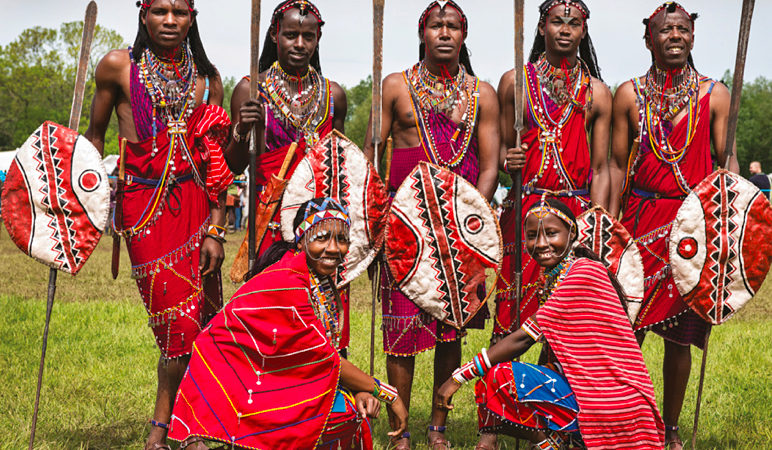Yes, but like anywhere in the world, it depends on how prepared and informed you are. Tanzania is one of Africa’s most beautiful and peaceful countries, rich in wildlife, welcoming smiles, and soul-stirring landscapes. From the golden plains of Serengeti to the snow-capped summit of Kilimanjaro, this is a country that offers magic. But before you jump on that plane, it’s good to ask the right questions. So, let’s break it all down in simple, honest, traveler-friendly language.
Are There Any Safety Concerns I Should Know Before Visiting Tanzania?
Absolutely, and that’s not a bad thing. Knowing what to expect helps you enjoy your trip without stress. Tanzania is generally safe for tourists, but like any destination, it has its share of risks. The trick? Stay alert, plan smart, and follow some basic safety rules.
What About Terrorism and Crime, Should I Be Worried?
Not really, but do stay aware. Terrorism is extremely rare in Tanzania, and when it does make headlines, it’s usually connected to isolated regions or political hotspots. As for crime, most incidents are non-violent, like pickpocketing or petty theft in cities like Dar-es-Salaam or Arusha. Don’t flash your phone or money around, and avoid wandering alone in dark or quiet places, especially at night.
Is Road Travel in Tanzania Safe?
Yes, but buckle up, it can be a bumpy ride. Roads in cities are busy, while those in the countryside might be dusty, muddy, or just wild. If you’re planning long-distance travel or a safari, use a trusted tour operator like Green World Safari Company. They know the terrain, the shortcuts, and how to keep you safe. Reputable drivers and well-maintained vehicles make a huge difference.
Can I Use Public Wi-Fi in Tanzania?
Technically, yes, but be cautious. Free Wi-Fi at airports, cafes, or hotels is convenient, but also risky. Avoid logging into your bank or entering personal details on public networks. Use a VPN (Virtual Private Network), and keep your passwords strong. If something goes wrong, report cyber incidents to the Tanzania Communications Regulatory Authority (TCRA).
Should I Avoid the Borders Near Kenya, Mozambique, and Burundi?
Generally, yes. While most borders are peaceful, some areas near these countries may experience political tensions or local unrest. Unless you have a specific reason to go, it’s best to skip those regions and stick to the heart of Tanzania’s beauty.
Can Political Demonstrations Affect My Trip?
It’s rare, but not impossible. Tanzania is a politically stable country, but peaceful protests or civil gatherings may pop up, especially around election time. Your best move? Avoid big crowds, follow the news, and listen to your local guide or hotel staff for updates.
Is It Safe to See Wild Animals Up Close on Safari?
Yes, if you follow the rules. Safaris are safe because your guides are trained experts who understand animal behavior. Never leave the vehicle without permission, don’t feed the animals, and keep your voice down. This isn’t a zoo; it’s the wild. Respecting it is part of the thrill.
Can the Weather Affect My Travel Plans?
Oh yes, Tanzania is full of surprises. The country has different climates, from the hot Serengeti to cool mountains and humid coastal zones. Rainy seasons (March-May and November) can bring slippery roads, delayed flights, and flooded trails. Always check the forecast and dress appropriately. Planning a beach trip? Watch for cyclone warnings along the coast.
What Vaccines and Medications Do I Need?
Start with yellow fever; proof of vaccination is required if you’re coming from certain countries. Recommended vaccines include hepatitis A, typhoid, and cholera. Malaria is also common, so take antimalarial and don’t forget your insect repellent. And yes, pack all the prescription meds you need; some drugs might not be available, especially in rural areas.
Is Healthcare in Tanzania Reliable?
In cities like Arusha and Dar-es-Salaam, yes. In remote areas? Not so much. Always carry a basic first-aid kit and know where the nearest clinic or hospital is. Comprehensive travel insurance that covers emergency evacuations is a must. Better safe than stranded.
Do I Need to Be Physically Fit for Safari or Climbing Mount Kilimanjaro?
Safari? Not really. It’s more about sitting back and enjoying the view. But climbing Mount Kilimanjaro is no joke. It’s a test of both body and mind. Be in good health, train ahead of time, and know your limits. If you’re not sure, chat with your doctor before booking that trek.
Are There Any Cultural or Legal Rules I Should Respect?
Absolutely, and respecting them shows you care. In Tanzania:
- Homosexuality is illegal.
- Public displays of affection (even between straight couples) are frowned upon.
- Dress modestly, especially in rural areas or Muslim-majority places like Zanzibar.
- During Ramadan or religious festivals, be extra respectful.
- A friendly “Jambo!” or smile goes a long way; it’s all about kindness and manners.
Can I Travel with Two Passports in Tanzania?
Not if one is Tanzanian. Tanzania does not recognize dual citizenship for adults. If you’re a citizen of Tanzania and another country, choose one passport to travel with, and stick to it throughout your visit.
How Do I Handle Visas and Passport Requirements?
Most tourists can get a visa on arrival, but it’s safer to apply online in advance. Make sure your passport is valid for at least 6 months beyond your travel dates. Keep a printed and digital copy of your important documents, just in case.
What about Money, Cash or Card?
The official currency is the Tanzanian Shilling (TZS), but US dollars are widely accepted, especially in tourist areas. Use ATMs in big towns, and always have a bit of cash for small purchases or tipping. Credit cards are accepted in some hotels and shops, but not everywhere.
How Do I Get Around Locally?
There are options for every traveler:
- Taxis are common, but agree on a price first.
- Buses and dala-dalas (minibuses) are cheap but often crowded.
- Domestic flights save time if you’re traveling far.
- Reputable safari operators usually handle all the logistics, one less thing to worry about!
Who Should I Call in Case of an Emergency?
For immediate help, dial 112, Tanzania’s 24-hour emergency line. Also, make sure you have the contact info for your embassy or consulate. It’s wise to register with your embassy when you arrive so they can reach you if needed.
So… Is Tanzania Worth It?
Absolutely. With the right planning and a little common sense, Tanzania is not only safe, it’s unforgettable. Think of thundering herds of wildebeest, sunsets over baobab trees, Maasai warriors greeting you with dance, and the stars stretching over the Savannah.
Travel smart. Respect the people and the land. And get ready to fall in love with Africa’s heartbeat, Tanzania.

